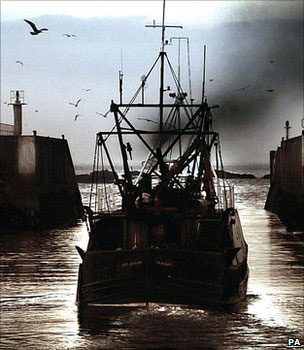11 July 2012
It has become a commonplace, accepted in all quarters, that the Common Fisheries Policy is a big, unwieldy, unresponsive beast.
Many of the reform proposals currently under discussion are aimed at bringing a greater degree of flexibility into CFP decision-making so that decisions on issues such as appropriate mesh and twine sizes are no longer made in Brussels, as part of large package deals.
The bad news is that, unless matters change, things are about to get much worse. We are heading for a legislative logjam that will grip fisheries in a policy gridlock, preventing us from moving forward and out of the morass that the CFP has become.
Management Plans
It is broadly agreed that a move to long term management plans (preferred by some to be known as multiannual management plans) offer big advantages. Moving progressively under agreed provisions towards an objective takes much of the heat out of TAC decisions, allows the industry to plan its operations and brings some stability.
However, a huge dispute has arisen between European institutions over who has competence to make TAC decisions within the context of a long term management plans. The European Parliament, which was granted co-decision powers under the Lisbon Treaty, insists that it now has co-responsibility for LTMPs and any TAC and quota decisions within them. The Council of Ministers and the Commission on the dispute this, pointing to the explicit exemption for annual TAC decisions from co-decision.
The dispute over which European institution has legislative competence in this area has already held up agreement on a number of LTMPs and unless it can be resolved quickly, shows every sign of heading for the European Court in Luxemburg. That could take years.
For many of the NFFO’s members, this dispute carries serious and immediate implications in the form of the EU Cod Management Plan. This Plan has been evaluated by the Commission’s Scientific, Technical, Economic Committee for Fisheries and found to be seriously flawed. In addition, all affected member states have made clear that the pre-programmed stepped reductions in fishing effort that are at the heart of the plan, are its biggest problem. In normal circumstances one would therefore have expected the Plan to be reviewed and revised at the earliest opportunity – last December, or this autumn, at the latest. The dispute between the European institutions has however brought things to a halt. The Cod Plan doesn’t work but unless the competence issue is resolved we could be stuck with it for some years.
This has immediate consequences. Unless interim arrangements can be put in place, the demersal fleets in the North Sea, Irish Sea and West of Scotland face further reductions in days at sea next year, against all the evidence that effort reductions of themselves contribute much to reducing fishing mortality and a mountain of evidence that they are causing serious economic stress. The Commission is said to be working on a proposal, to be unveiled later this summer, on interim measures but it is far from clear what this will contain – tinkering with relatively minor elements of the Plan – or real relief from the automatic cuts. The obstacles to an effort freeze are no longer based on conservation arguments – the notion that reductions in effort lead to anything like proportional reductions in fishing mortality has been blown out of the water by STECF; the problems in moving forward out of this mess are primarily related to the dispute about co-decision and respective competence.
Technical Conservation Rules
Another part of the policy logjam lies with the technical conservation rules. The current regulation (EU 850/98) is not fit for purpose and has not been fit for purpose since the day in came into force. Patched up with amendment after amendment, its catch composition rules are one of the drivers of legislative discards. One attempt to revise the rules has already been abandoned by the Commission, and member states had to prevent the Commission rushing an ill-digested Proposal through in 2010 to beat the arrival of co-decision. It is now clear that we are stuck with the current complex, inconsistent, counterproductive set of technical rules until the shape of the CFP reform is decided – 2014 at the earliest.
It is significant that major changes to the technical conservation rules will be required if an obligation to land all named regulated species – in effect a discard ban – is to be deliverable.
Regional Management
The policy logjam spells out in the clearest terms why it is necessary for CFP reform to provide scope and empowerment for decisions on the content of long term management plans and technical measures to be made at the regional level, with oversight but minimal involvement in the detail by the European institutions.
It requires a degree of optimism to believe that the Commission will later this summer propose an effort freeze and other improving adjustments to the Cod Plan as part of an interim package; and that the Parliament, recognising the implications for fish and the fishing industry, will fast track these stop-gap measures pending the development of a new long term plan.
Optimism is also required to believe that the impasse between the Council and Parliament on LTMPs will be resolved quickly through dialogue and that the CFP reform will deliver genuine scope for regional decision-making in fisheries, even if the legislative route to give those decisions the force of law is still through the European institutions.
But if that optimism is misplaced the policy gridlock will be a nightmare to deal with.

